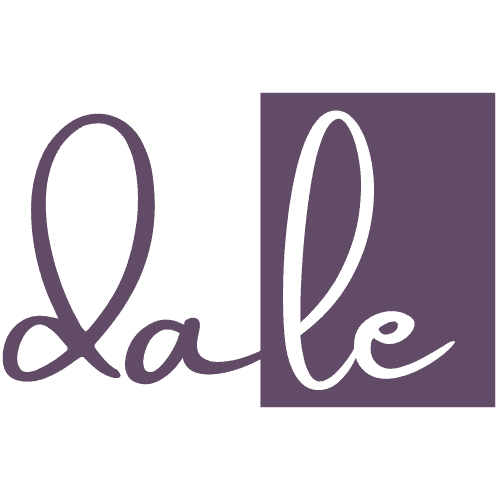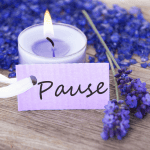The first in a series on memoir writing for women ready to tell their deliciously real and messy stories
I am sure many of us feel exhausted from editing ourselves into being acceptable. This could be in relationships, jobs, social media, or any number of places.
You’ve done it, haven’t you? Taken a nail file to your sharp edges and packaged up the bits you think others don’t want to see into little parcels. Or what about transforming your trauma into inspiration? I have done it.
Yes, transforming trauma can be inspiring, but so can the mess, the contradictions and the moments that don’t fit neatly into a transformation narrative. While I am not advocating a blow-by-blow account, I think it’s the messy middle that the world needs to hear. And I would say that because that’s what I write about. Not the perfect outcome, but the bits that hurt and are healing. We are after all works in progress.
The Myth of the Perfect Memoir
We’ve been fed a steady diet of memoirs that follow a predictable pattern: broken, enlightened and ta-dah healed. The hero’s journey is wrapped and tied with a bow of toxic positivity. These stories suggest that if you just work hard enough, think positively enough, forgive completely enough, you’ll emerge on the other side fully sorted, permanently grateful for your trauma, and ready to inspire others with your neat little before-and-after story.
It’s bollocks, frankly.
Real life is messier – it’s oh so messy. Healing isn’t linear – surely you have been on the cosmic roundabout? And real stories – the ones that actually matter and the ones that make other women feel less alone in their own beautiful disasters – don’t follow neat narrative arcs. They spiral, contradict themselves, circle back, and refuse to be contained in frameworks designed to make readers feel comfortable.
What Writing From The Wild Really Means
Writing from the wild isn’t about vomiting on the page, oversharing or being overly dramatic – that’s what your journal is for. It’s about writing from the place in you that refuses to be tamed by other people’s expectations of how your story should sound. It’s about trusting that your unedited truth – messy, complicated, sometimes unflattering – is valuable exactly as it is.
And yes, you may feel a massive cringe – I do when I confess to something I’d rather sweep under the carpet.
The wild self is the one who knows that not every wound becomes wisdom, every experience doesn’t need to teach a lesson, and not every story needs to end with inspiration. Sometimes things are just hard – I mean, really, freaking hard. Sometimes people are just awful. Sometimes healing looks like acceptance rather than transformation, boundaries rather than forgiveness, and choosing yourself over keeping the peace.
When you write from the wild, you give yourself permission to:
- Feel your feelings without making them teachable moments. Your grief doesn’t need to become gratitude, and your anger doesn’t need to transform into compassion. Sometimes, emotions are just information, not a course list.
- Tell the parts that don’t make you look good. The times you stayed too long (yeah, why do we do this?), chose the same toxic pattern again, or said yes when your whole body screamed no. These aren’t failures to hide – they’re the human experiences that make your eventual choices meaningful.
- Refuse the pressure to forgive prematurely. Forgiveness as a spiritual goal has become another way to silence women’s legitimate anger about the ways they’ve been harmed. Your healing doesn’t require you to absolve anyone else. Yes, I know that if we don’t forgive, it hurts us more, but come on, let’s have a bit of sacred rage first.
- Write without needing to be likeable. Women, especially, have been trained to be palatable, to file down our rough edges until we’re smooth enough for mass consumption. Wild writing gives you permission to be complicated, complex, contradictory, weird and wonderful – in other words, human.
Why Your Story Matters (Even If You Think It Doesn’t)
“But who would want to read about my ordinary life? I’m boring, my trauma isn’t dramatic enough. Other people have been through worse. I am not completely healed yet, and I am not sure anyone will buy into my wise counsel.”
And there we have it – those nasty little I am not good enough gremlins. So, stop right there.
The women who most need to hear your story aren’t looking for perfection—they’re looking for permission to be where they are without shame, to still be figuring it out, and not to have it all sorted by the age they thought they should.
I believe that showing what is possible for us, with all of the messy, rough bits, is inspiration enough. It shows what is possible in the world without perfect conditions.
Your story matters because:
It’s yours. No one else has lived your exact combination of experiences, made your particular mistakes, or learned your specific lessons. Even if a million other women have been through divorce, illness, abuse, or loss, none of them have processed it through your unique filter of personality, circumstances, and perspective.
It’s unfinished. The most powerful memoirs aren’t written from the safe distance of complete healing. They’re written from the messy middle, from a place of still becoming. Readers connect with your uncertainty more than your certainty and the questions still on your lips.
It gives others permission to be human. When you share your real story – not the highlight reel, or the carefully curated version, but the actual lived experience with all its delicious messiness – you give other women permission to stop performing their own healing and start experiencing it differently.
The Difference Between Memoir and Therapy
Writing your memoir isn’t therapy, and it’s not about processing your trauma for the first time or hoping the act of writing will heal you. If you’re in the thick of fresh wounds, seek professional support before you try to make your pain into a book.
I wrote the crap out in my journal, walked my dogs, and processed it before I wrote.
Memoir is what happens after you’ve done some of the work. It’s a reflection, not a place to process. However, if you do write lots of your stuff, it is helpful, but you will have a massive editing job and then the dilemma of what to share and what not to do.
Use your journal and therapy to figure out what happened to you and what you wish someone had told you when you were in the thick of it. When you write a memoir, you’re writing to share what you’ve learned and are still learning.
The difference is the difference because it affects your safety as a writer and the quality of your story. Raw, unprocessed trauma doesn’t make for a compelling memoir; instead, it makes for emotional dumping that serves neither you nor your readers. But trauma that’s been lived with, reflected on, and integrated? That becomes wisdom worth sharing.
Your Invitation to Write Wild
So here’s my invitation: stop waiting until you have the perfect story to tell, believing that your experiences need to be extraordinary to be worthy of ink and editing yourself into acceptability.
Start where you are. Start with what you know. Start with the story that’s been knocking around your wild heart, asking to be told, even though it doesn’t fit the templates you’ve seen other memoirs follow.
Try This
When writing my latest book (which has yet to be published), I let go and followed a new process that felt like coming home to myself.
Here’s what I did:
- I had my outline, so I knew what I wanted the chapter to be about, but not the finer details
- The night before, I scribbled notes, ideas, bits of stories in my journal
- In the morning, I handwrote all of the stories, and I’m going to call it mind nonsense that came with these
- I walked the dogs and let other thoughts and ideas come to me – great for clearing away the dross
- Then I worked until lunchtime
- That afternoon, I only looked at my outline to remind me, and I wrote 2000-3000 words
Why My Writing Process Works So Well
1. I Write From Your Body, Not My Head
My process – scribbling notes at night, handwriting stories in the morning, and walking the dogs – engages the whole system. I’m not trying to think my way into good writing; I’m letting it emerge from a deeper place. The handwriting especially connects me to a more intuitive flow than typing ever could.
2. I Trust the Mess
“Mind nonsense” – I love this phrase! I give myself permission to capture the raw, unfiltered thoughts without immediately judging them. This is where the gold lives – in the bits that feel too honest, too real and way too much.
3. Movement Creates Space
Walking the dogs between the morning brain dump and afternoon writing is genius (if I say so myself). It literally clears away the “dross” and lets your subconscious process what wants to emerge. My best insights probably come during those walks, not at my desk.
4. I Write Long and Fast
2000-3000 words in an afternoon session means I’m writing faster than my inner critic can keep up. There’s no time to edit myself into what might be the right way – I trust what comes.
5. I Start From Connection
My outline gives me direction, but I don’t let it constrain me. I’m writing from the story that’s “knocking around my wild heart” rather than forcing content into predetermined boxes. That’s probably why index cards don’t work so well for me.
I felt more alive writing it and I also felt more scared, but I did it. Ok I am still in the editing phase and who knows what that will bring up.
But I wrote from the messy middle and I invite you to do the same.
In the next post in this series, we’ll explore how to find your ‘wild’ voice and begin capturing the raw material of your life. Because before you can write your story, you need to remember who you are beneath all the performance.
Ready to start writing from your wild heart? The journey begins right here with what you have.














